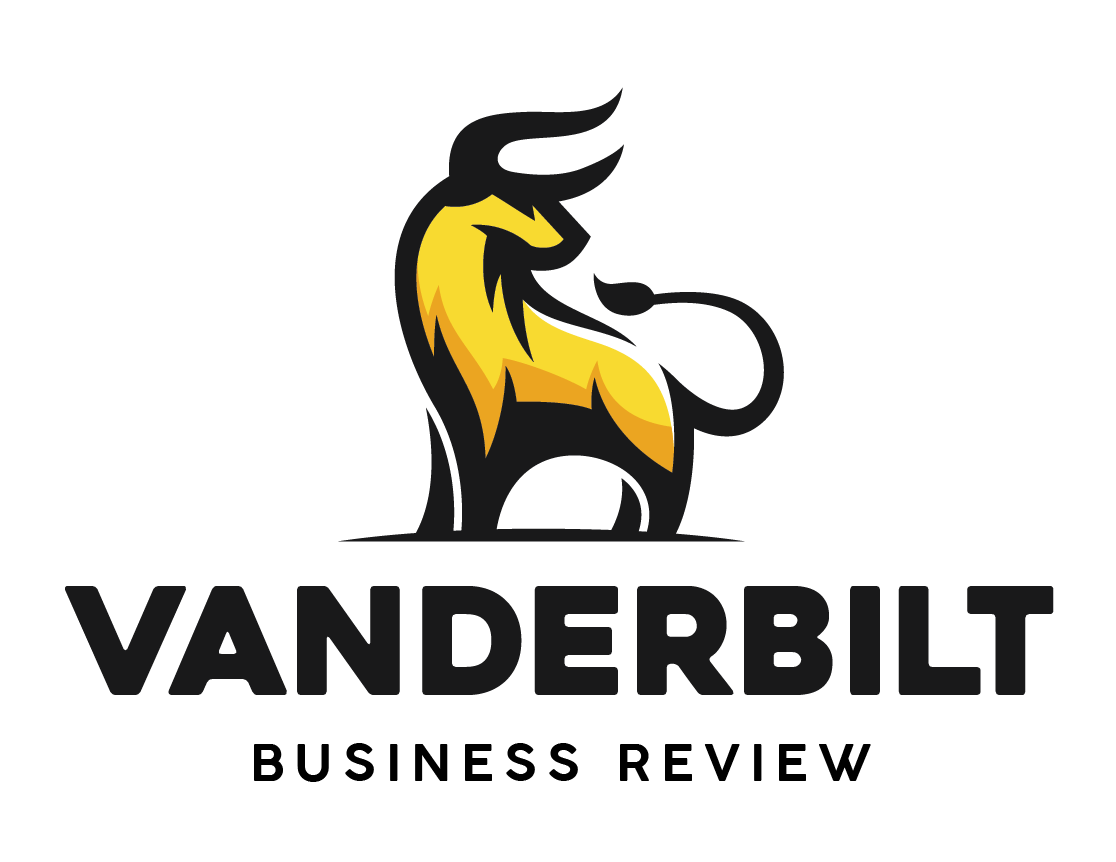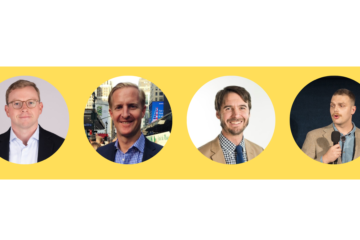By: Shane Mumma
Editor’s Note: Shane and Ash are good friends. The following in-person interview has been edited for clarity and length.
Shane: So, hello Ash! Welcome to this interview with the Vanderbilt Business Review—we’re happy to have you here! Basically, we’ve heard that you’ve launched a bunch of businesses during your time at Vanderbilt, and we’d love to hear about them. So, if you could tell me about your current business Feather—what it is, how you got the idea, and what the timeframe for it actually being available is.
Ash: Sure, great! So yeah, I’m Ash. I’m a senior here at Vanderbilt and I’m the Co-Founder and CEO at Feather. And at Feather, we’re building a platform that allows retail traders to discover, analyze, and identify the world’s best investments with data that has only been available to Wall Street’s biggest institutions until now. So, we provide institutional quality data on 48k equities, 180k options, 3.5 million bonds, 3k commodities, 2k currency pairs, 10k individuals, and 11k institutions in 24 countries. And, we do so at a price of starting at $39 per month, which is about 99% cheaper than institutional incumbents right now like the Bloomberg Terminal or Capital IQ, which both cost about $25k per year. So, what we’re doing with this and our mission is to enable everyday traders, everyday investors to participate in the markets with the same quality of data and information that informs the trades of the world’s biggest institutions.
So, over the history of stock markets—we can go back to the Amsterdam Stock Exchange (which is the first stock exchange ever founded), where the Dutch East India Company was listed—all the way through today: the history of stock market trading has always been the insiders, the institutions doing very well and the everyday guy, due to lack of data, lack of knowledge, and lack of information (largely due to the unaffordability of those things), not doing very well or being taken advantage of. So, a good example of this is you go back to the 1500s or 1600s and the most sophisticated investors at the time were buying stock in the company and doing very, very well, becoming history’s most valuable company. And, at the same time the guys who didn’t have information and couldn’t afford information or were duped by companies—it’s really funny if you read about it, one of them promised to harness the sun’s energy from plants. There was another which raised billions, millions of dollars of capital saying their mission was so important that they couldn’t reveal it.
Shane: Man, I’d love to have an idea that good!
Ash: So, you know you’ve had the everyday investor being duped: the same thing happened in the 1920 stock market bubble in the United States. Insiders, Joseph Kennedy, J.P. Morgan Jr., and several of the Wall Street titans were driving up and manipulating stocks through stock pools, which in a sense is legalized insider trading, and really making very successful trades at the expense of the everyday person. This system of insider, successful institutional investors profiting at the expense of the uninformed, data-lacking retail investor, is an inequality in our society that’s continued to the modern day. We saw this last year with the short-squeezes and things like that where the everyday man really tried to fight back against the long-term success of institutional investors. And, a lot of this problem is really caused by a lack of affordability of data. Before I founded Feather, I actually pooled some friends and family capital and launched an investment fund, and as I was running that I realized that the quality of data that I was using to make very successful trades, having the information—that information cost over $25k, $30k per year, and the everyday person would never be able to afford that and would therefore be missing out on a lot of opportunity. So, when I saw that there was this disadvantage that the everyday person has, I decided to build a solution. But, it is really a disadvantage. But it is possible with a high level of engineering to provide a similar quality of data at a price that is affordable to the retail investor—$39 per month is what Feather starts at and it is 99% cheaper than the incumbents. So, I decided to build it alongside my partner Patrick—he is brilliant as a developer.
Shane: Is he a Vanderbilt student?
Ash: No, he graduated from the University of Oregon. Patrick was doing PhD level research as an undergraduate on cybersecurity and counterattack systems, which are actually an institutional use today—so absolutely brilliant developer, we’re very lucky to have him as a Co-Founder and on the team at Feather. So, we decided to build this system to solve this inequality that is perpetuated throughout world history for about 400 years now. And, now is really the right time: we have technology, we have the public initiative, we have the company with Feather to solve
the 400 years of inequitable access to history’s greatest wealth-creation engine, and we’re really working to democratize access to the stock market and enable everyday people to make informed investments.
Shane: Absolutely. So that sounds very interesting—so, after hearing all that, my big question is basically, your value proposition is essentially your price, correct?
Ash: It’s price, it’s the depth of analysis—it’s really the depth of analysis that’s available for the price. You’re able to get institutional-level insights, that have not been accessible to the average person until now, at a price that makes sense, and as you know is the same price as a few coffees every month.
Shane: So, my big question is how exactly are you doing this? How are you getting it so cheap?
Ash: Sure, so it comes down to again, being very, very fortunate to have a team, a very brilliant team. I’m humbled to work with Patrick and our developers every day. And so, a lot of what we do, and a lot of how we’re able to offer this quality and depth of data at a price that is affordable to the everyday person, is we’re using cutting-edge technologies to automate a lot of the manual processes, expensive manual processes, that incumbents use to gather data. So, you know, you have teams—not to name any specific competitors—but when we first put up the waitlist, which by the way has grown…
Shane: How many people do you have on it?
Ash: Hundreds, approaching a thousand
Shane: Wow. That’s a lot of money!
Ash: Yeah, and so you know when we put up this wait list for the first time, all a lot of people told us, “Well, how are you going to compete with certain incumbents which have teams of 3k or 8k people to process, gather, and clean data?” And we had that question, and as we built our product some of those doubts have been put to rest in the public sphere and certainly will be as we bring it to launch. It’s all about the technology: the best technology can automate a lot of expensive manual processes, and that enables us to provide and deliver data at a price that is 99% cheaper than the incumbents.
And, you know, we’re very excited to launch Feather to the public in the first quarter of 2023, so just a few months away. We have a pretty extensive waitlist, so we’ll be letting people on board in the order of sign-up. I really encourage people who are interested in learning how to trade, and perhaps even more importantly people who are interested in trading and want to trade with the right data to ensure their strategies really do make them money in the long-term and to basically trade at a level playing field with Wall Street’s biggest institutions, I really encourage them to check Feather out. Feather is also free for students.
Shane: Really?
Ash: Yeah, that’s important to know. So, most of this Vanderbilt community, the base tier will be available for free.
Shane: Wow, so that leads to more questions. So, as you know obviously, I am signed up on your waitlist. I’ve been very excited for this as well. But you know $40 a month would be a lot for me—I don’t know if I’d want to do it because right now I’m not invested in any stocks, so hearing that it’s free that does change a lot. So my question on that is, how are you profiting off college students if the base tier is free? What’s your game plan?
Ash: Well, you know, the really important question—we have a great business model—the really important question is how does working with college students and how does working with our customers at large feed into our mission? So, our mission is not really just providing data or enabling people to trade a little bit better. Our mission is to enable the everyday person in the world and in our country to build really important financial freedom for themselves. And this is a really, really important goal, right?
Having that safety net, that freedom allows you not to be chained to your job if you don’t want to be. It means that if your family wants to go on a vacation, you’re able to do so without having to worry about finances or if your child needs healthcare, you can do that—all these really, really important things and moments that make life enjoyable and worth living—financial freedom is an important precursor to those and our mission is really to spread joy throughout the world by enabling individuals to have that degree of financial freedom. And, you know, we’re allowing people to build that financial freedom by affordably providing the data necessary to make winning trades through our platform. And, you know, our technology, our hard work, is really inclined to build the best product possible when it comes to financial data so that our customers have the clearest path to financial freedom through successful, informed trades.
But the end goal that’s really important to remember is that spreading joy, spreading happiness, spreading financial freedom, is what’s important. And when we work with students, coming back to your question, what’s really important to us is helping people learn how to get to that end goal of freedom from a young age, from an early start. I think it’s a little bit sad that financial literacy, specifically investing literacy, is not very well taught in schools. Vanderbilt’s very, very fortunate—I think students here at Vanderbilt are very fortunate—that education is available if you chose to enroll in such courses. But broadly speaking, it’s not something that’s taught in our high schools or any other kind of education or secondary education. So, what’s really important to us in order to pursue our mission is working with people from the start to ensure they know how to pursue that goal effectively. So, we really want to work with students, we want to work with young people so they can learn how to analyze and make effective trades, and profitable trades, which contribute to that goal of financial freedom from a young age.
Part of that by the way, and this is you know, independent of age by the way, what we’re going to be doing alongside our launch in Q1 2023, is we’re actually creating a completely free tutorial series which really goes from start to finish on how to start trading, how to start investing, how to construct an effective portfolio for the long term. You know, we aren’t really day traders, we want to build a long-term portfolio—how-to build a portfolio that does well independent of market conditions. So, there’s been a lot of talk—market goes up, market goes down, we want to
build a portfolio that does well over the long-term independent of those conditions. So we’ll create a full tutorial on how to start investing, how to create a portfolio, how to invest effectively towards that goal of financial freedom and really demonstrating how doing these things can really change your life and enable a lot of freedom over the long-term. And, we’ll publish this course—part of that will involve using Feather, how to use Feather towards those tasks/that mission—we’re publishing this course though completely for free, available on YouTube, and we’ll be doing so alongside our product launch.
So, we really encourage people, even those who really aren’t experts on investing, but maybe are curious about it, maybe know that they want to achieve financial freedom, that they want to achieve the kind of worry-free life that comes with financial freedom, but don’t really know where to get started and how to invest to get that goal, we’re creating a completely free education series to do that. And, so you know, everything we do, I think it’s important to ask ourselves: is everything we do towards that end mission and our goal? With our education, with our free access for students, with our everyday investor affordable pricing, that’s really what we do and strive to achieve with everything we do at Feather.
Shane: I think that’s really beautiful. It’s honestly fantastic and refreshing that you guys really want to stick to your mission and your value proposition so much, you’re not necessarily just super money-hungry and want to make money however you can, which I think can definitely be very inspiring to Vanderbilt students because we’re all very ambitious. But some of us maybe just want money, maybe don’t want to do something we’re passionate about, so I think that’s really great that you found something you’re passionate about here.
So now transitioning a bit, now that we know all about Feather, why you started it, when it’s coming out, all that stuff, I’d like to ask more about you and also Vanderbilt, how Vanderbilt helped contribute to this business (if at all it did). Are there any resources at Vanderbilt that maybe inspired you to be entrepreneurial like The Wondry, maybe a business minor, maybe even a professor who really motivated you or just inspired you, anything like that here? Or maybe just the people you’ve been around too?
Ash: I think what makes Vanderbilt, Vanderbilt, is the people. And, something that I would really emphasize to students, prospective students, incoming freshmen, whoever it may be, is that your time at Vanderbilt you’re going to be surrounded by some of the brightest, most driven, and capable people that you’ll ever be surrounded by in your life.
Shane: 4% acceptance rate last year in regular decision—gets lower every year.
Ash: Yeah, yeah—pretty happy I snuck in when I did!
Shane: Me too, me too!
Ash: But, you know, you’re surrounded by these really bright, talented, capable young people, and I would really take advantage of that to bring your vision to life. For example, it was a Vanderbilt student, one of my best friends, who actually introduced me to my Co-Founder (as friends first, and then later we became Co-Founders). Or, it was a Vanderbilt student, now a Columbia master’s student, who now joined us, who does software development for us, helps us bring our beautiful, intuitive front-end to market.
Disclaimer: Shane introduced Ash to this other Vanderbilt student, when Ash asked for help finding coders.
Oh, by the way, that’s something worth noting: financial data and all this stuff can seem really tough to get started with: like, how do you use all this data I have (or something like that)? And a lot of the incumbent tools really are hard to learn, and are challenging to learn—they’re not very intuitive. Something that we’ve really emphasized on Feather is it’s really easy to use from the second you sign in. It takes seconds to access every data point. With our tutorial series, you know what every data point is useful for. So, everything that we put is within easy access, very simple access—there’s no complex commands that you need to plug in like we do with some of the incumbents. It’s very simple to access and even more importantly perhaps, you know what those data points are useful for. How do they contribute to your trading performance? How do they contribute to your goals of financial success? So, that’s something that’s important to know as well with Feather. You don’t want to have to be a financial expert to start using it, it’s very quick, simple to get started with.
And, I think that Vanderbilt’s definitely—to answer your original question—a great resource to meet people who can build great things.
Shane: Yeah, I totally agree. I mean, I met you through Vanderbilt.
Ash: Yeah.
Shane: So, my next question will also be related to Vanderbilt. I’m sure a lot of the budding entrepreneurs at Vanderbilt who are reading this article are wondering what advice you would have for them, other people who want to launch their own businesses—whether it’s in a similar industry like tech, finance, or maybe something totally different, maybe they want to start a restaurant. What would you say to Vanderbilt students who want to launch their own business? What is your advice?
Ash: Well, you know, starting a business is really challenging work, there’s a lot to it—nothing’s charted for you. Starting a business, whether you’re starting a technology company, or a restaurant, or even a weighted pillow company [Shane knocked a pillow on the ground during this interview], it’s a lot of work. Nothing is charted for you—but if that turns you on, if walking that uncharted path lights a fire in your eyes and you get to blaze your own trail—I think you’re young now, you don’t have dependents, or mortgages, or healthcare or stuff like that—you’re able to go down whatever path you want right now. Take this moment to blaze your own trail and I don’t think you’ll regret it. But that does mean when you start a business there are a lot of sacrifices. You’ll be spending a lot of time working on it, you might have to give up nights out with your friends, you might have to give up studying as hard for a test as you might have wanted to. So, there’s definitely a price you have to pay to do it. But, if you have that idea that you think is good, and it lights a fire up inside of you and you can’t stop thinking about it, then do it I think. I don’t think you’ll regret it. And, put in the time, and pay the price, and what comes out the other side will be worth it I think.
Shane: Wow, yeah that’s extremely well-said. I’m definitely doing to keep that in mind. So, my next question is, how do you manage all the facets of being a college student, on top of trying to start your own company?
Ash: Well, you know, like I said it is important to prioritize. I think you just have to be pretty intense about work. You have to know what’s important and spend the time on it, and being social or something like that—you might have to not spend much time on that. You have to accept that as the price of the goals you pursue. I think if you’re the type of person who is driven to start a business, I think you already know that you are driven to pay that price and are okay with it. But, you know, you have to prioritize. Maybe, don’t get too fond of 8 hours of sleep very night.
Shane: May I ask how many hours you sleep per night?
Ash: It depends—sometimes four, sometimes six.
Shane: Let the record show I look very surprised right now. Four hours?
Ash: I normally wake up pretty driven to get to work. In the early days, and even now really, I often spend a lot of time dreaming of Feather and the vision I have for it going forward. Sometimes I even come up with ideas when I sleep.
Shane: So, you even work in your sleep then?
Ash: Well, you know…
Shane: It’s a yes or no question.
Ash: What do you call work? Work, in the sense of a professional endeavor towards a professional goal, sure you can call it work. But I think this is true of most people really working (to use the word) on their passions, it isn’t really work, is it? It’s life, it’s why you exist. It’s not work in the sense that it’s how you make money, it’s why you live. If you pursue a mission that’s that important to you, you’re not working, you’re enacting the reason why you’re alive.
And to that, wouldn’t you want to spend 24 hours making the reason you’re alive come to fruition? I mean, I sure would. That’s what I do.
Shane: That’s really inspirational—which I feel like I’ve been saying a lot during this interview, but again, yeah, definitely very well said.
Well, Ash thank you so much for sitting for this interview with us at the Vanderbilt Business Review. We really appreciate your time and all the insight you provided for us and our readers. So, lastly is there a website or social media that people can go to in order to learn more about Feather?
Ash: Yeah, I’d really encourage people to check out our website at try-feather.com. You can sign up for our waitlist—it’s completely free, no credit card required to sign up for our waitlist. And Feather is free for college students, for students—high school and whatnot too.
Shane: High school too? Wow, that’s very generous.
Ash: Yeah, so we’ll be launching in a few months, and we’ll be opening access in order of waitlist sign-ups. So, if you’re interesting in checking us out and getting access to Feather on a priority basis, I’d really encourage you to go to our website, see what Feather does, and sign-up for our waitlist and early access to Feather on try-feather.com.
Shane: Awesome, well thank you so much Ash!
Ash: Yeah, of course! Thank you, Shane.
Shane: You’re welcome.



